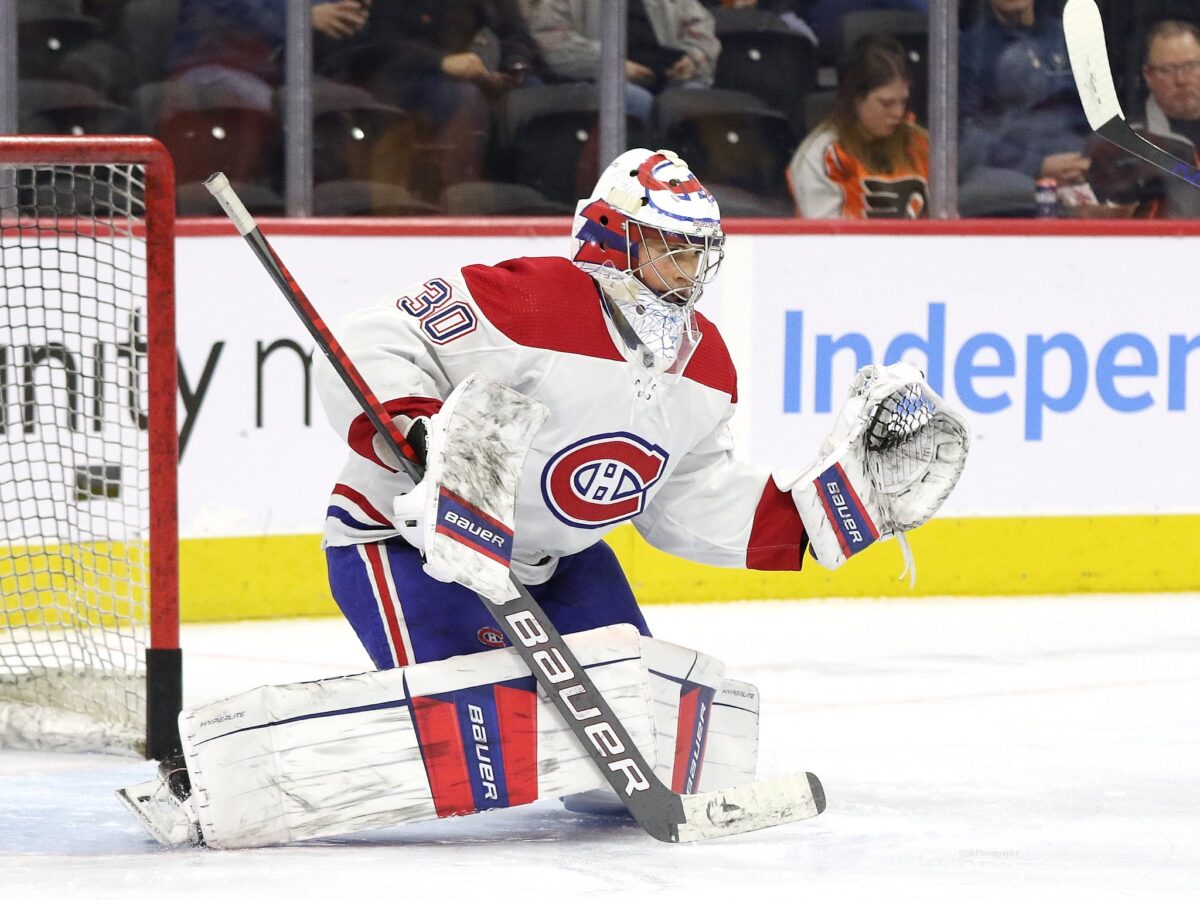After starting the 2021-22 season on a historically bad run, leaving the team mired in 32nd place with only eight wins in the first 44 games, the organization turned the page on the Marc Bergevin era. The former general manager (GM) had some success culminating in a Stanley Cup Final appearance in 2021 but it proved to be unsustainable. Team owner Geoff Molson decided to make a clean break and hired Jeff Gorton as executive vice president. Together, they brought in former player agent Kent Hughes as the new GM.
Since his arrival, Hughes has been busy making trades to add futures at the trade deadline, then taking a novel approach focusing on skill and speed instead of drafting as many players of one position in the hopes one would end up making the NHL. That brings the franchise to the next step of a pivotal offseason, the restricted free agent (RFA) qualifying offer deadline.
What is an RFA?
An RFA is a player who is no longer considered “entry-level,” but does not yet qualify as an unrestricted free agent (UFA) when their contracts expire, under the age of 27 or less than seven years under an NHL contract. For a team to keep a player’s RFA status, they must provide a Qualifying Offer.
Related: Canadiens Make Bold Moves on Day 1 of 2022 Draft
If they do not give a Qualifying Offer (QO), then that player becomes a UFA. There are many rules that must be adhered to, but essentially all QOs must be provided to the player by either the Monday after the Entry Draft or June 25, whichever comes first. A player doesn’t need to accept the QO, but the team placing one on them retains their RFA rights.
Meet the RFAs
The Canadiens have 10 RFAs this summer. However, not all of them are created equal. Some are seen as pivotal, others as depth, and finally, those that are expendable.
Rem Pitlick
Claimed off of waivers from the Minnesota Wild, Rem Pitlick joined a team in free fall and in need of speed. He was able to take advantage of his situation and proved he can be a versatile player, playing all three forward positions. He was also a productive one, scoring nine goals and 26 points in 46 games with Montreal. His QO of $917,831 isn’t expensive for someone that can fill a bottom-six role, and thus should be tendered.
Kirby Dach
Kirby Dach, a 21-year-old 6-foot-4, 198-pound center was acquired from the Chicago Blackhawks in a blockbuster draft floor trade.
The young center will be given a fresh start in Montreal with less pressure to carry his team, playing behind Nick Suzuki. His QO is $832,500 and will be tendered, as Hughes traded a top 15 pick and defenceman Alexander Romanov for him.
Samuel Montembeault
Sam Montembeault needs a QO of $750,000, and if he accepts that deal, then it is an inexpensive price for who will most likely be the backup goaltender for the Canadiens in 2022-23. While it may not be ideal, the uncertainty surrounding the health and return of Carey Price leaves the role of starter in the hands of Jake Allen, who will need someone to start some games and allow him to rest at times. The lack of pressure to compete for a playoff position next year leaves him in a low-pressure situation too.
Cayden Primeau
Cayden Primeau is still seen as the top goaltending prospect in the system. He suffered a difficult season at the NHL level, but the situation that saw him play for the Canadiens this season was due to a record number of man-games lost, meaning the lineup in front of him had many American Hockey League (AHL) call-ups. His subsequent play in the AHL Playoffs showed that he still has untapped potential and the skill to become an NHL starter if given time to hone his craft in the minors. A QO of $832,500 makes him another inexpensive option for next season.

There are other RFAs who could earn a QO and subsequent contract offer. Players like Micheal Pezzetta, Nate Schnarr and Corey Schueneman all provide depth. In Schueneman’s case, he became a defender trusted by his head coach, Martin St. Louis.
Names such as Kyle Clague, Joel Teasdale, and Josh Brook seem to be redundant in the Habs’ system. With the Canadiens having 33 of the 50 contracts allowed and 31 prospects on the reserve list, they need to decide on who can be signed or kept, and difficult decisions on who has earned NHL contracts must be made. That isn’t to say that these players couldn’t be offered an AHL contract, which doesn’t count towards the 50 total contracts allowed.
With a new management team in place, a new direction in development and playing style is beginning to take shape. It is only natural that they take their time to assess who they want to keep, who can be replaced, and who they want to sign from their massive pool of drafted prospects. That also doesn’t take into account the contract and salary cap space they would need to have in order to target any depth UFAs this summer. With the team in need of salary cap relief, the decisions to qualify or not to qualify may end up being about money as well as their future fit in the team’s plans.